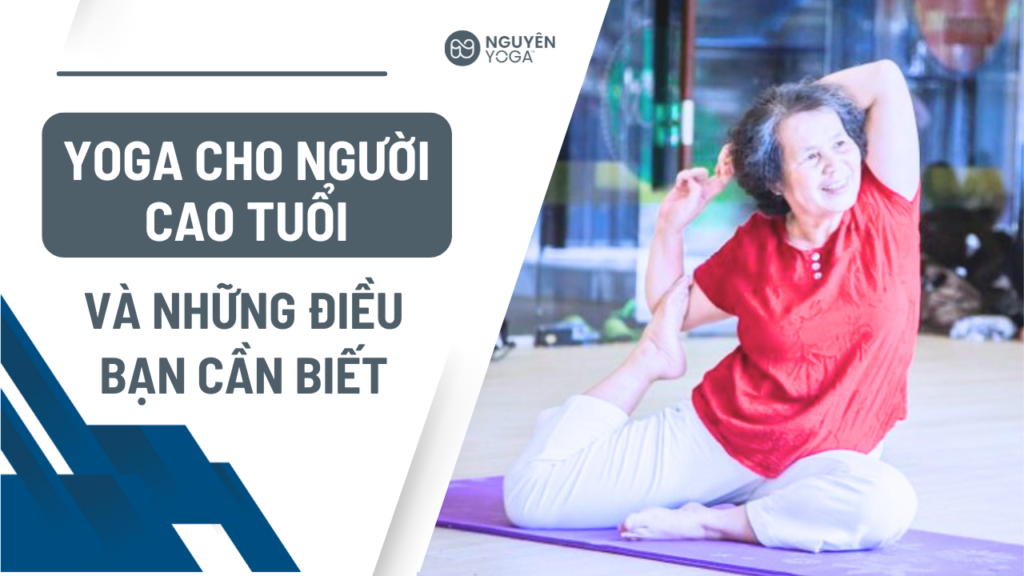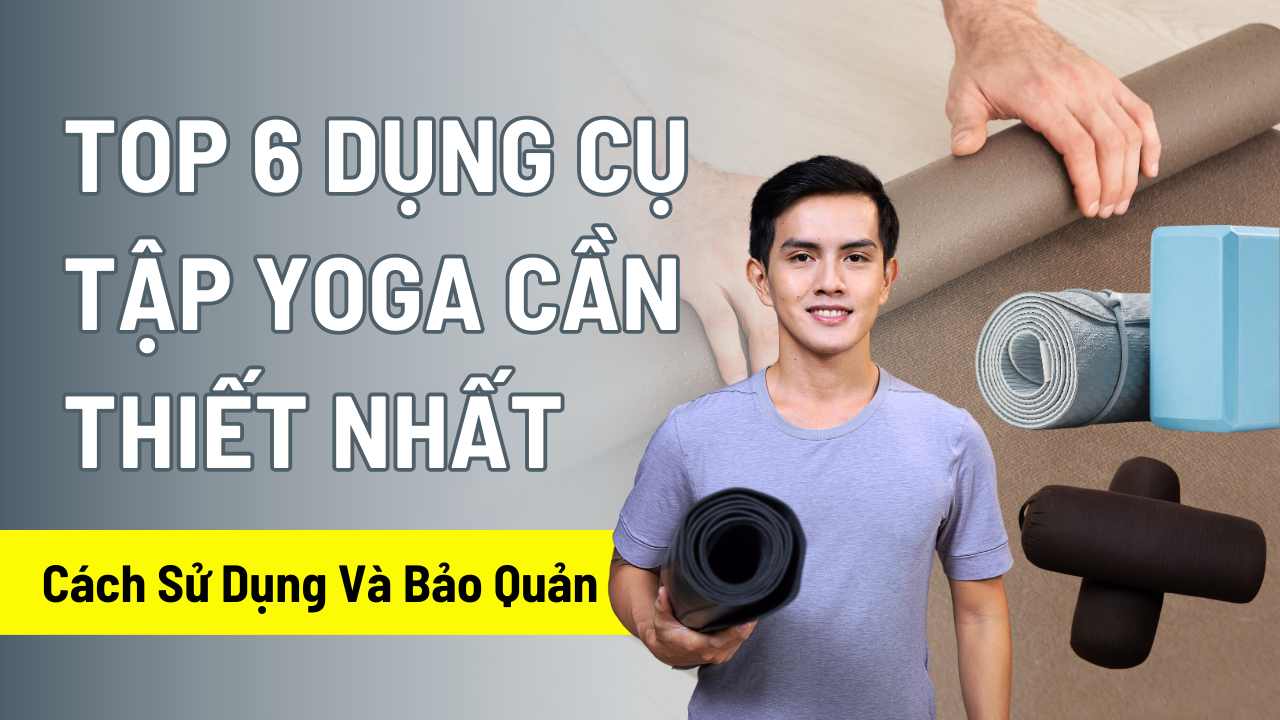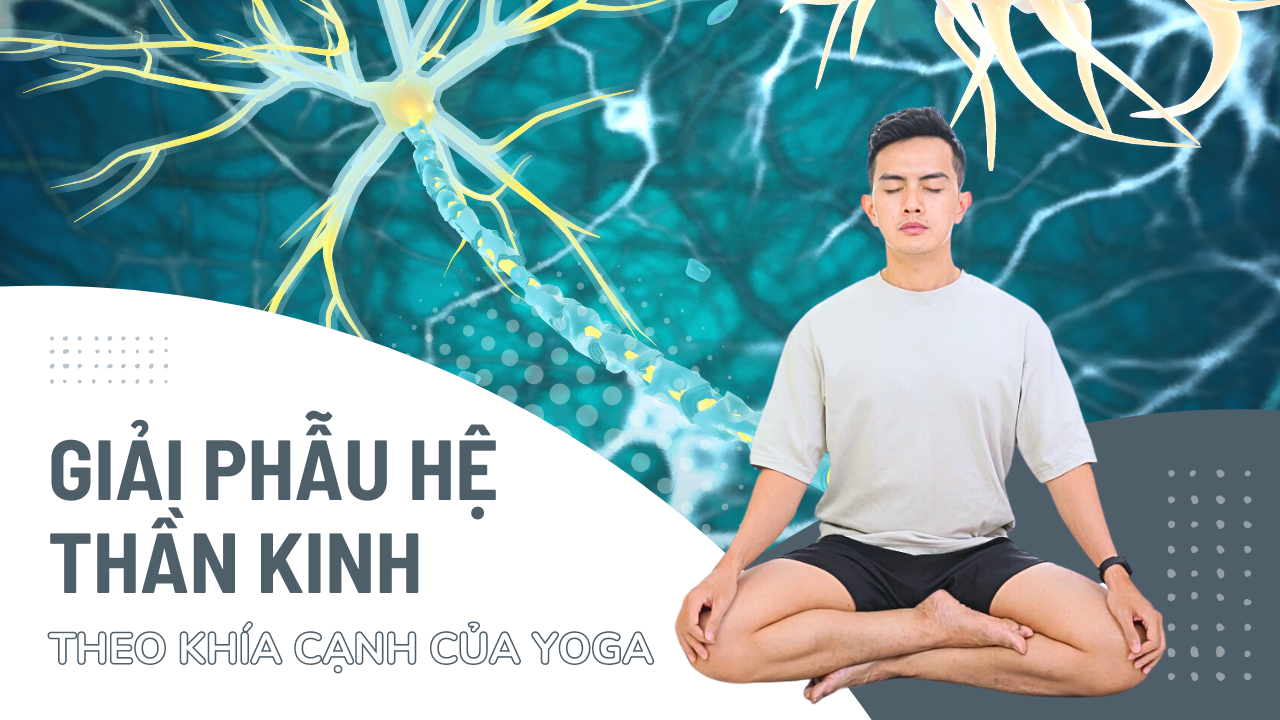As we age, our bodies also undergo inevitable changes. Flexibility decreases, joints become more rigid, and the risk of injury increases.
However, that doesn't mean seniors need to give up physical activities. On the contrary, gentle and age-appropriate exercise is more important than ever. Among the great options, yoga has emerged as an ideal subject. The question "should elderly people practice yoga" is asked by many people, especially children who want to find a healthy subject for their parents. In this article, Nguyen will help you answer your questions.
Should elderly people practice Yoga?
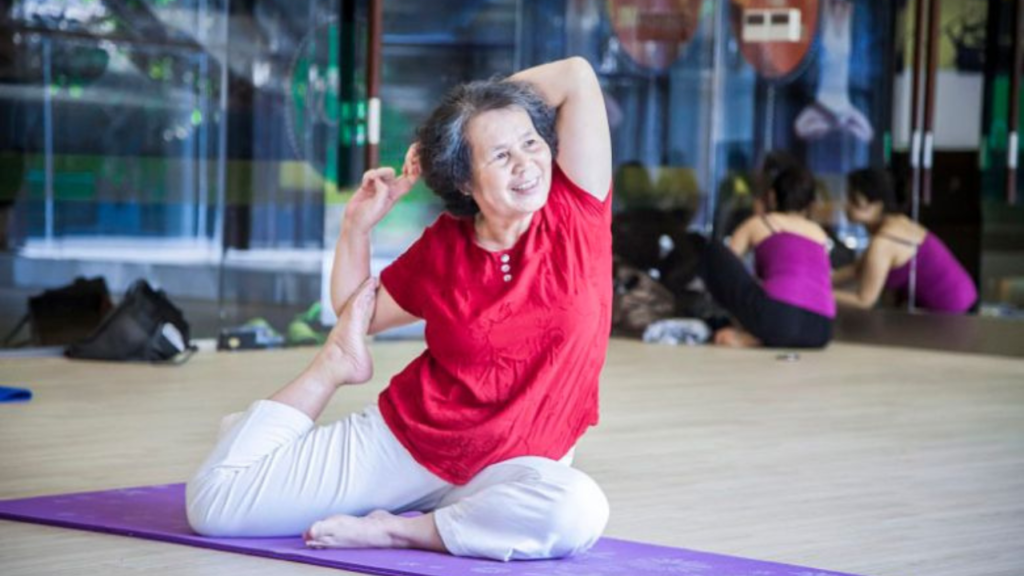
Of course! Yoga brings a series of benefits to the elderly, both physically and mentally. This discipline helps improve flexibility, muscle strength, and balance – all of which are especially important for the daily activities of the elderly.
Yoga also promotes blood circulation in the body, strengthens bone and joint health, and reduces the risk of injury due to falls - a common problem at this age.
In addition, Yoga also brings great mental benefits. Breathing and meditation techniques in Yoga help calm the mind, reduce anxiety and stress, thereby improving sleep quality.
Through Yoga, elderly people can discover themselves and find a sense of inner peace and happiness. The seamless combination of physical and mental health makes Yoga an extremely suitable subject for comprehensive health care, especially for the elderly.
Benefits from Yoga exercises for the elderly
Yoga is a great choice for seniors who want to improve their health and quality of life. Gentle exercises that focus on breathing provide many benefits for both body and mind.
- Sleep better: Yoga can help improve the sleep quality of the elderly. Gentle Yoga exercises help relax your muscles and mind, helping you fall asleep easier and sleep better.
- Flexible movement, protecting bones and joints: Yoga helps increase muscle strength and flexibility, helping you move more easily and reducing the risk of falling. Yoga can also help protect bones and joints and reduce the risk of osteoporosis.
- Reduces the effects of chronic diseases: Yoga can help reduce the effects of chronic diseases such as joint pain, high blood pressure and diabetes. Yoga can also help improve mood and reduce stress levels.
- Reduce symptoms of hypertension: Yoga can help reduce blood pressure in the elderly. Yoga exercises help relax the muscles and mind, helping to reduce stress levels, one of the main causes of high blood pressure.
- Effective mental medicine: Yoga can help improve mood and reduce stress levels in the elderly. Yoga can also help boost confidence and self-esteem.
How should elderly people practice Yoga?
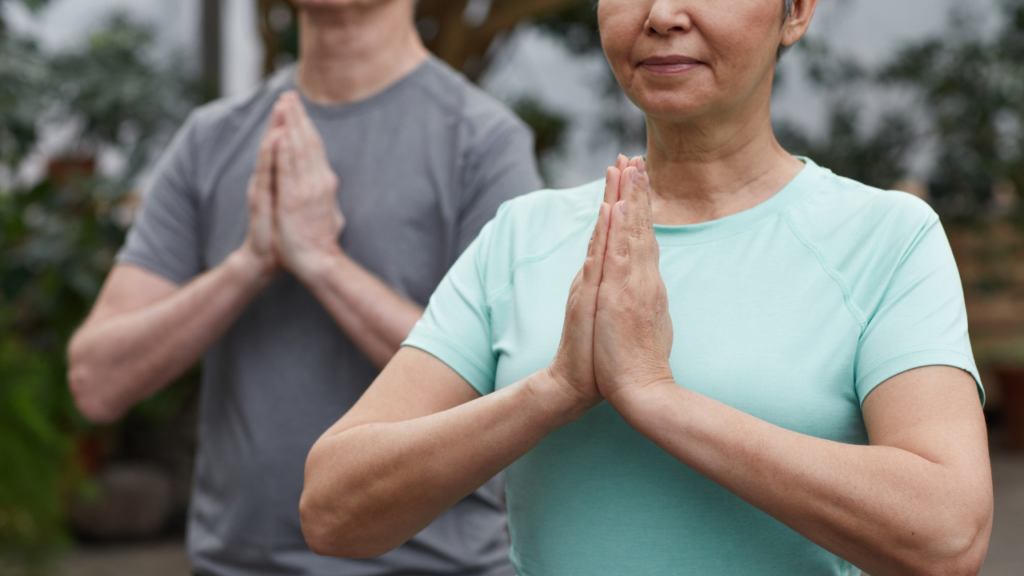
Yoga brings many great benefits to the health and spirit of the elderly. Here's how older adults should start their Yoga journey:
- Start slowly: Before diving into your practice, consult your doctor to ensure Yoga is appropriate for your current health condition.
- Choose an experienced coach: Instructors specializing in Yoga for the elderly will guide you through safe movements and adjustments appropriate to your abilities.
- Prioritize simple posture: Yoga offers countless pose options of varying intensities. Start with easy poses like tree pose or warrior pose, then gradually increase difficulty as your body adapts.
- Listen to your body: Yoga is not a race. If there is any pain or discomfort, stop and adjust your position or rest. Yoga should be a comfortable and relaxing experience, not strenuous.
- Combine deep breathing: Breathing techniques are an essential part of Yoga, helping to improve exercise effectiveness, reduce stress, and improve sleep quality.
Things to note when the elderly practice Yoga
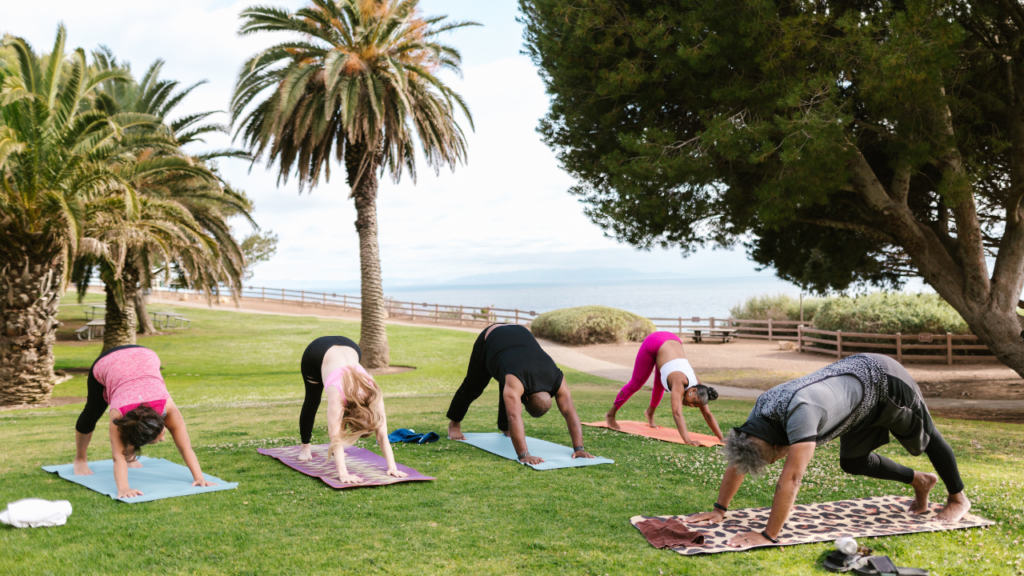
Yoga brings many great benefits to the elderly, but the practice process also has important caveats. Joints and muscles are no longer as supple and flexible as when they were young, so choosing the right class is a key factor.
Prioritize classes specifically for seniors, where instructors understand the physical fitness and specific health needs of seniors. Before starting, it's essential to talk to your doctor – underlying health problems may lead to contraindications to specific positions.
Slowness and patience are the keys for the elderly when practicing yoga. Listen to your body, adjust the intensity and pace to suit your ability. In addition, a thorough warm-up and adequate hydration are also important factors to ensure a safe and effective workout session.
Nguyen hopes that the above sharing will be useful to you and your loved ones. Please see and look forward to more articles about Meditation and Yoga on the website Nguyen Yoga, besides there are also many other useful videos on Nguyen Yoga Youtube channel that you can refer to.

